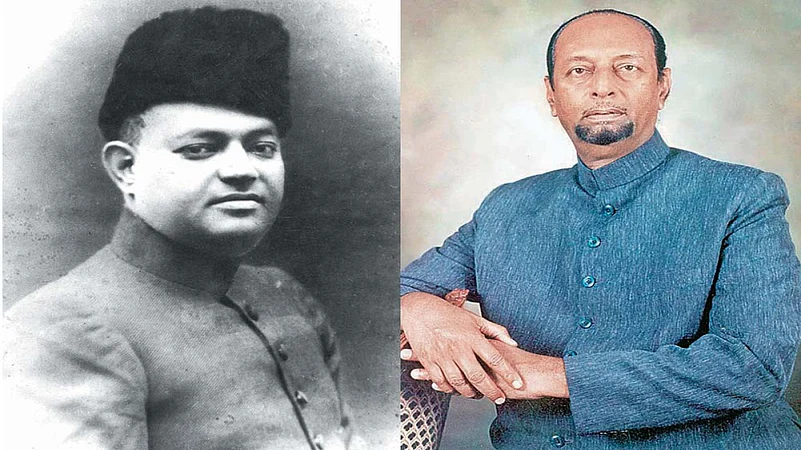India’s modern political history is malleable—distorted by those ascending the electoral ladder to suit their narrative. It shouldn’t surprise that the AIMIM is economical with historical facts too. As Asaduddin Owaisi’s party began expanding its footprint beyond the Old City of Hyderabad, a taint persistently hurled at it was that it was born out of a Muslim supremacist, violently anti-Hindu, pro-Pakistan movement. Owaisi, who inherited the party in 2008 from his father, the late six-term MP Sultan Salahuddin Owaisi, thought it fit to hyphenate his party from the old Majlis-e-Ittehad-ul-Muslimeen (MIM) that his grandfather, Abdul Wahed Owaisi, had received as an unusual bequest from the notorious Syed Qasim Razvi before the latter migrated to Pakistan. Abdul Wahed took over in 1958, revived it after a decade of inactivity caused by Razvi’s incarceration following the Indian army’s Operation Polo (September 1948) that paved the way for Hyderabad’s annexation to the Indian Union.
ALSO READ: Capped Crusader
The AIMIM’s website makes no mention of the period between 1927—when the MIM was founded by Islamic leaders Maulvi Mahmood Nawaz Khan, Maulvi Pasha Hussaini etc under patronage of the Nizam with the agenda of maintaining the Asaf Jahi dynasty’s hold on Hyderabad’s Islamic monarchy—and 1938, when Bahadur Yar Jung took over as president. The edited history maintains an obvious silence on what followed when the MIM leadership passed to Razvi. It is Razvi’s stewardship of the MIM and its turbulent history that Owaisi has desperately tried to shrug off. The site makes no mention of Razvi’s presidency and states the MIM “ceased to exist” after September 1948; it doesn’t say this was because of Razvi’s incarceration and the government banning the MIM for the bloody mayhem it unleashed.
Razvi, as historians have documented, was the leader of the Razakars, a self-styled Muslim militia patronised by the Nizam. Razvi and his Razakars, supported by the MIM, gained notoriety for terrorising Hyderabad’s Hindus, whipping up religious sentiments among the Muslims prior to the princely state’s accession to the Indian Union and lobbied with the Nizam to accede to Pakistan. Owaisi has repeatedly answered the taunts on that phase by saying the “Razakars left India for Pakistan, we stayed back”.
ALSO READ


























